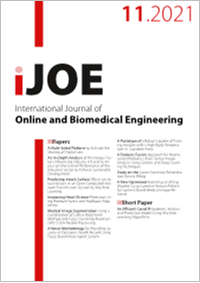Predicting Attack Surface Effects on Attack Vectors in an Open Congested Network Transmission Session by Machine Learning
DOI:
https://doi.org/10.3991/ijoe.v17i11.25025Abstract
This paper examined the impact of a network attack on a congested transmission session. The research is motivated by the fact that the previous research community has neglected to evaluate security issues related to network congestion environments, and has instead concentrated on resolving congestion issues only. At any point in time, attackers can take advantage of the congestion problem, exploit the attack surface, and inject attack vectors. In order to circumvent this issue, a machine learning algorithm is trained to correlate attack vectors from the attack surface in a network congestion signals environment with the value of decisions over time in order to maximise expected attack vectors from the attack surface. Experimental scenario that dwell on transmission rate overwhelming transmission session, resulting in a standing queue was used. The experiment produced a dataset in which a TCP transmission through bursting transmission were capture. The data was acquired using a variety of experimental scenarios. Nave Bayes, and K-Nearest Neighbours prediction analyses demonstrate strong prediction performance. As a result, this study re-establishes the association between attack surface and vectors with network attack prediction.



